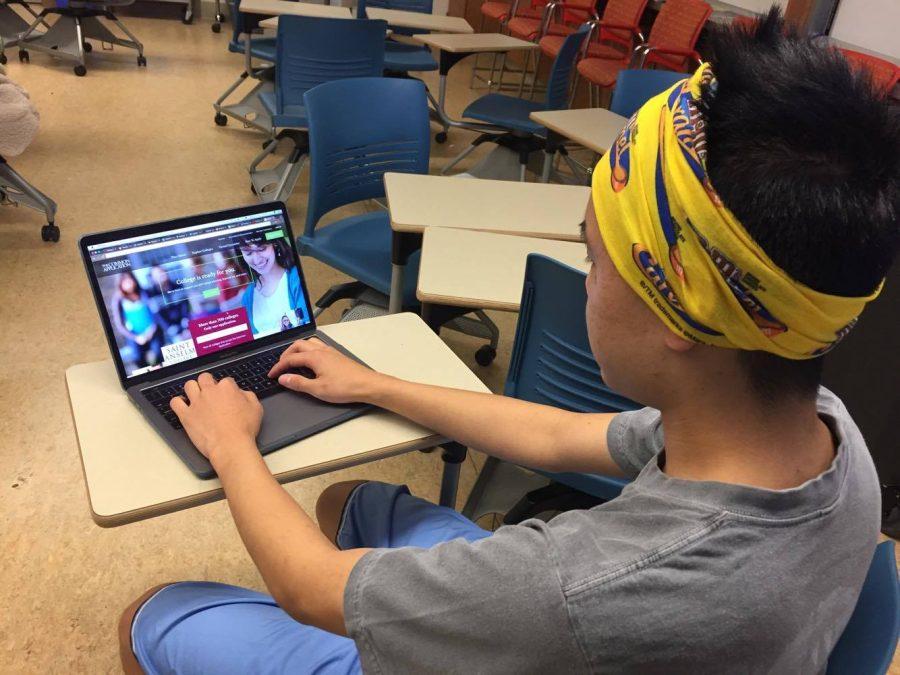Editor’s note: This column has been modified from its original version. A section about admissions and race has been removed.
It’s hard to quantify what college applications feel like. You can try to use numbers, the acceptance rates of whichever selective university you’re applying to. You can try to use dates, Nov. 1, Nov. 30, Jan. 1 and March 30 (Ivy Day). You can even try to use the amount of sleep you get, a graph which would just be a plateau at around four hours (not including your daily three hour nap).
Nevertheless, here’s a useful summary of what a typical student should expect while completing college apps from a well-functioning high school student.
Letter of Recommendation
Outside of standardized test scores and grades, the letter of recommendation is inarguably the most important part of junior year. This is where you smile in class until your cheeks hurt, attempt to stay awake even though you just saw the sun come up in the morning and participate every opportunity you can. As a general rule of thumb, if you’ve managed to make the other people in your class hate you and your annoying voice at the end of the year, you’ve done a good job. At the end of junior year, evaluate which teachers dislike you the least before using your prepared speech to entice them into saying something good about you to colleges.
The Common App
This should only take you an hour or so, with most of the time being spent reflecting on your a depressingly empty awards and extracurriculars section. After asking your parents what colleges they went to and wondering how intelligence managed to skip a generation, you fill out several pages worth of personal information. Otherwise, this part should be a breeze, especially when you’re making your college list with 14 reach schools and nothing below the top 25 rankings because your parents are Asian.
The Personal Statement
Probably the most important essay of your life, this 650-word nightmare should contain “passion,” “voice” and “personal identity.” Combining all three of these leads to you staring over and over at the sample essays online (shoutout Johns Hopkins University’s 2020 cranes essay) to figure out a direction for your essay. When actually beginning to write your essay, be sure to avoid thinking about the perfectly crafted Ivy-level essays, or else you’ll be constantly comparing your own sh-tty writing to what talented people would actually write. In the end, stare at your 650-word essay until you realize there is truly nothing remarkable about your sad, pathetic, wretched life and you’ve wasted the last 18 years of your existence here on Earth.
Supplements
Be prepared to shift your time spent on Netflix to time spent on your dream school’s website staring at pictures of students who have managed to do what you will inevitably fail at: gain acceptance. Regardless, at least attempt to show some “demonstrated interest” by following the tried-and-true formula of flexing extracurriculars, name-dropping professors, spouting courses you probably won’t even take, and talking about how “prestigious” whatever your major of choice is. In the end, you’ll reuse the majority of your supplements, simply by copy-and-pasting and find-and-replacing the names of colleges with each other. I would say these are foolproof…oh wait, they are.

